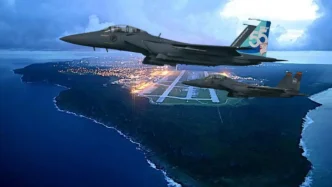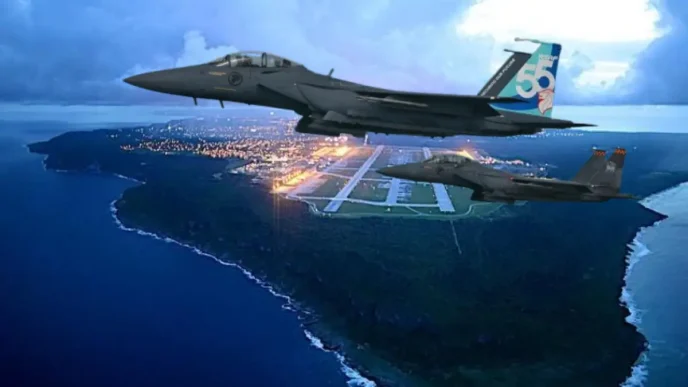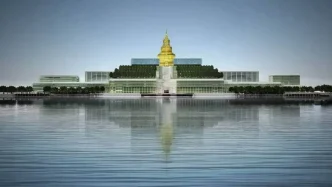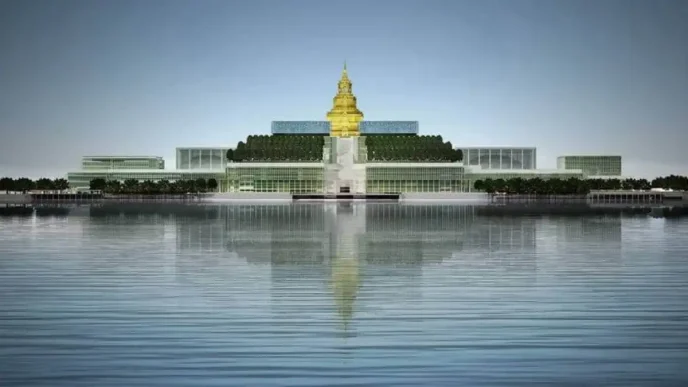Thailand’s Deputy Prime Minister and Defence Minister Phumtham Wechayachai has issued a seven-day ultimatum to security forces to deliver tangible results in curbing insurgent violence in the country’s deep South, following a deadly attack on Buddhist monks. The directive, announced on April 24, 2025, underscores the government’s urgency to restore public confidence amid a resurgence of conflict in the southern border provinces.
Urgent Call for Action After Deadly Attack
In a decisive response to escalating violence, Phumtham ordered the Fourth Army Area, police, and other security agencies to intensify operations across four southern provinces. The move comes just a day after insurgents targeted a pickup truck carrying six Buddhist monks and novices during their morning alms round on April 23, 2025. The attack resulted in the death of one novice, with a monk and another novice sustaining injuries. This incident is the latest in a series of violent episodes that have rattled the region, despite ongoing efforts to broker peace with insurgent groups.
Phumtham emphasized the need for proactive measures to enhance security, stating, “We must be proactive and end the violence as soon as possible to restore public morale.” He has set a tight deadline of seven days for security forces to demonstrate concrete progress, with a follow-up meeting scheduled to assess the situation. “I want to see significant changes in the security situation” he told agency heads, reinforcing his expectation for immediate action.
Coordinated Security Efforts
To ensure a robust response, Phumtham has engaged with key figures across multiple agencies, including the commander of the Fourth Army Area, the commissioner of Provincial Police Bureau 9, a deputy permanent secretary from the Ministry of Interior, and the secretary-general of the Southern Border Provinces Administrative Centre. Both the army chief and national police chief have pledged their full support for the operation. “I told them that if they lack anything or need reinforcements, they can tell me directly” Phumtham said, signaling an open line of communication to address operational challenges.
The southern border provinces of Thailand, particularly Narathiwat, Pattani, Yala, and parts of Songkhla, have long been plagued by a separatist insurgency led by groups such as the Barisan Revolusi Nasional (BRN). The conflict, rooted in ethnic and religious tensions between the region’s Malay-Muslim majority and the Buddhist-majority Thai state, has claimed thousands of lives over decades. Phumtham’s latest directive reflects a renewed push to assert control over an area where violence has flared despite intermittent peace talks.
Peace Talks and the Challenge of Authority
Despite the spike in attacks, Phumtham remains committed to dialogue, asserting that the government will not abandon the peace process. “Despite the increased attacks, I will not close the door to peace talks” he said. However, he stressed that any negotiations must adhere to the principle that “Thailand cannot be separated,” a firm stance against separatist demands. He also called on insurgent representatives to demonstrate their authority over the groups they claim to speak for, a recurring challenge in negotiations where splinter factions often operate independently.
Phumtham revealed that he had previously urged the BRN to suspend violent activities as a gesture of goodwill and proof of their influence over insurgent factions. The recent wave of attacks, however, suggests a lack of cohesion among these groups or a deliberate rejection of dialogue. He speculated that the uptick in violence might be linked to his recent review of security strategies aimed at swiftly ending the conflict, though he offered no concrete evidence to support this theory. If confirmed, this could indicate a strategic escalation by insurgents to undermine government initiatives.
In a notable development, Malaysian Prime Minister Anwar Ibrahim has offered to facilitate the peace process by appointing a new moderator for talks, should Thailand request assistance. Malaysia, which shares a border with Thailand’s southern provinces, has historically played a mediating role in the conflict due to cultural and linguistic ties with the region’s Malay-Muslim population. While Phumtham acknowledged the offer, he did not confirm whether Thailand would accept external mediation at this stage.
Martial Law and Security Improvements
Amid the heightened security operations, Phumtham confirmed that plans to lift martial law in four districts across three southern border provinces remain on track. These districts have reportedly seen improvements in their security situation, a development the government views as a step toward normalcy. Lifting martial law, which grants security forces sweeping powers including detention without trial, is often seen as a confidence-building measure in conflict zones. However, the timing of this decision—against the backdrop of renewed violence—raises questions about its potential impact on local communities and the broader insurgency.
The decision to maintain this timeline reflects a delicate balancing act for the Thai government. On one hand, easing restrictions could signal progress and goodwill; on the other, it risks exposing vulnerabilities if insurgent groups exploit the transition. Analysts suggest that the government’s ability to deliver on security within the seven-day window will be critical to justifying this policy shift.
Historical Context and Regional Dynamics
The insurgency in Thailand’s deep South traces its roots to the early 20th century, when the region—historically part of the Malay Sultanate of Patani—was annexed by Siam (modern-day Thailand). Decades of assimilation policies, economic marginalization, and cultural suppression have fueled grievances among the Malay-Muslim population, giving rise to armed resistance. The conflict intensified in 2004 following a series of coordinated attacks, prompting a heavy-handed military response that further alienated local communities.
Successive Thai governments have oscillated between military crackdowns and peace initiatives, with limited success in achieving lasting stability. Peace talks, often mediated by Malaysia, have been hampered by distrust on both sides, as well as the fragmented nature of insurgent groups. The BRN, considered the largest and most influential faction, has engaged in dialogue but struggles to enforce ceasefires among smaller, more radical cells. Meanwhile, civilian casualties—such as the recent attack on monks—continue to erode public trust in both the government and insurgent negotiators.
Beyond domestic challenges, the conflict has regional implications. Thailand’s southern border is a porous zone, with cross-border movement facilitating arms smuggling and insurgent recruitment. Malaysia’s involvement, while constructive, is complicated by domestic political pressures and historical ties to the Malay-Muslim cause. Any sustainable resolution will likely require coordinated efforts between Bangkok and Kuala Lumpur, alongside genuine engagement with local communities.
Public Morale and Government Accountability
Phumtham’s emphasis on restoring public morale highlights the psychological toll of the conflict on southern residents, many of whom live under constant threat of violence. The targeting of Buddhist monks, revered figures in Thai society, carries particular symbolic weight, deepening communal tensions in a region already divided along religious lines. “We have said we would not abandon the people and that we would rebuild their confidence—but that requires tangible results” Phumtham reiterated, acknowledging the government’s responsibility to deliver on its promises.
However, skepticism persists among locals and observers about the feasibility of achieving significant progress within a mere seven days. Security operations, while necessary, often risk alienating communities through heavy-handed tactics such as mass arrests or curfews. Without parallel efforts to address underlying grievances—economic disparity, cultural identity, and political representation—military measures alone are unlikely to yield a lasting solution.
Looking Ahead: A Test for Thailand’s Resolve
As Thailand braces for the outcome of this intensified security push, the coming week will serve as a critical test of the government’s strategy in the deep South. Phumtham’s ultimatum places immense pressure on security forces to produce results, but it also raises the stakes for his administration. Failure to curb violence could undermine public trust and embolden insurgent groups, while overly aggressive tactics risk further inflaming tensions.
At the heart of this challenge lies a broader question: can military action and peace talks coexist, or will one inevitably undermine the other? For now, Phumtham appears determined to pursue both, maintaining an open door to dialogue while cracking down on violence. Whether this dual approach can break the cycle of conflict remains uncertain, but the eyes of southern Thailand—and the wider region—are fixed on the days ahead.













